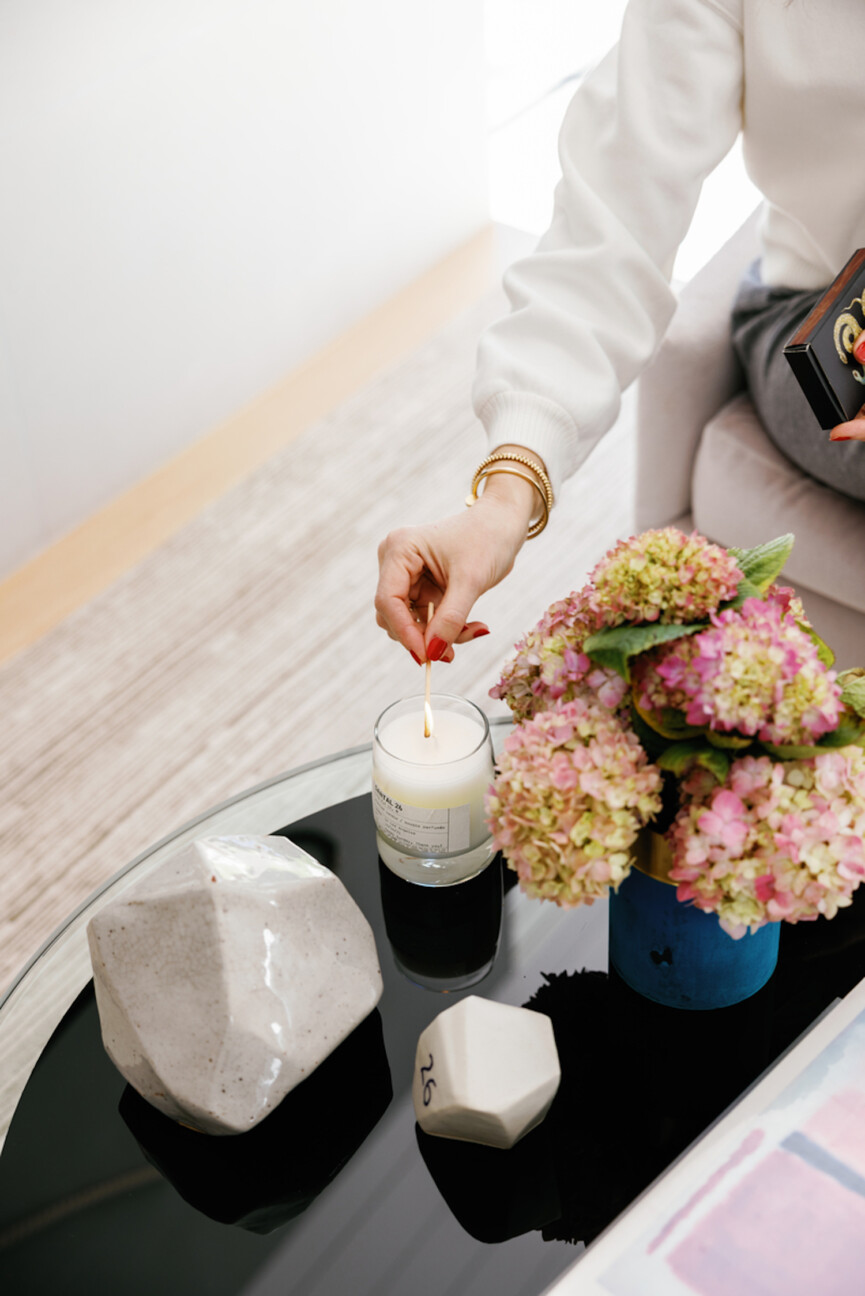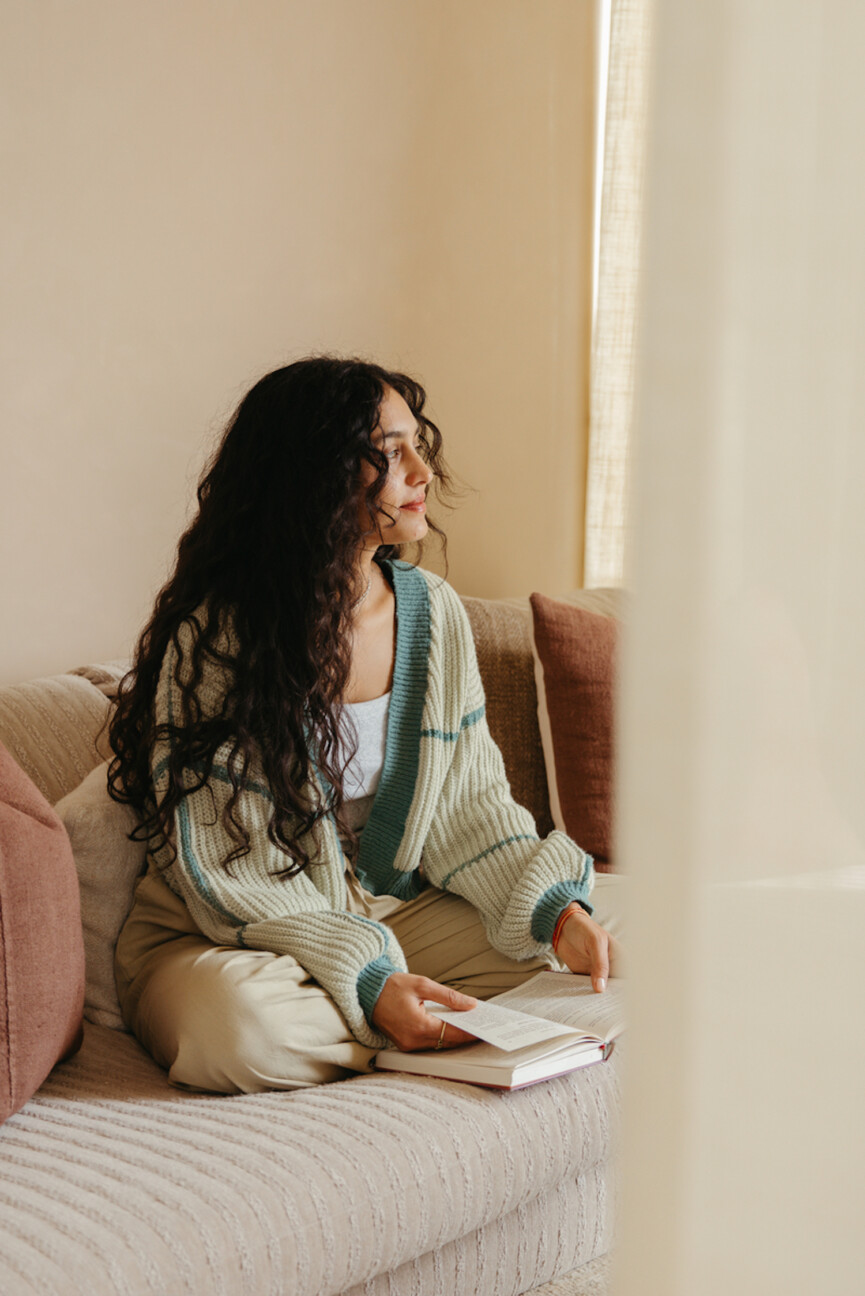My PCO The diagnosis of POLYCYSTIC OVARY SYNDROME (PCOS) was nothing short of a surprise. After months of wandering through waiting lists and waiting rooms, I walked into the gynecologist’s office hoping I would get an accurate diagnosis. I hoped my periods were irregular enough, my hormones were imbalanced enough, and my ovaries were cystic enough that I could reach doctors who could help me feel at home in my body. Luckily, my team of doctors validated my physical examination And Emotional struggle. I walked out of that meeting with tears of joy. Relief and healing were on the horizon.
What is PCOS?
PCO It is a hormonal imbalance characterized by an excess of androgens and can cause ovarian cysts (small sacs of fluid on the ovaries). Ovarian cysts disrupt ovulation, which is why many people with PCOS experience irregular menstrual periods and infertility. Excess androgens can also cause weight gain, difficulty losing weight, acne, facial hair growth, and androgenic alopecia (male pattern baldness).
At this time we don’t understand what specifically causes PCOS, although we do know some factors that may contribute to its occurrence and severity. insulin resistance (a condition in which the body is no longer as sensitive to insulin, resulting in increased blood sugar levels) can cause an increase in androgens, resulting in PCOS symptoms. Genetics Having a family history of PCOS also increases a person’s chances of getting PCOS. However, there is not enough evidence to suggest a root cause. PCOS is also chronic, which means there is no cure. This is why many PCOS treatment plans, including mine, target the symptoms.

My PCOS plan
A key part of my PCOS plan was weight loss. My team of doctors attributed many of my symptoms to my weight gain over the years, and said that if I lost weight, my symptoms would resolve on their own. Like many women, I have struggled with this problem. body image Despite being a three-sport athlete in high school for most of my life, that later led to me becoming an avid runner for long walks, Pilates, and the occasional treadmill walk. I was open to my weight loss plan because I felt my body positivity was strong enough to take on the challenge. In fact, I thought of it as a test of sorts. How strong was my resolve to appreciate my body no matter what?
Armed with a plant-based diet plan, a commitment to five hours of exercise per week, and two new prescriptions, I left the doctor’s office ready to fight my symptoms. I prioritized fiber, took my daily walk, and went to bed two hours earlier than usual. I set an alarm to make sure I was taking all my medications at the right time. I endured the nausea of that new medication with a handful of pretzels and lots of ginger tea. If my new lifestyle was a test, I’d be fine. Definitely passing.
After the first week, my resolve started to change. I would start skipping meals if I didn’t have anything “healthy enough” at home. I would wait until 1:30 pm to eat under the guise of intermittent fasting. If I couldn’t find a way to sneak spinach or lentils (or both) into whatever I was eating, I felt like I was failing at my plan.
Every time I looked in the mirror, guilt would pile up in my stomach. I realized what was happening. My PCOS treatment, which was meant to prioritize a healthy, inclusive life, led me to guilt, self-doubt, and restriction.

PCOS and Weight Loss
There is much debate over the weight loss approach recommended by doctors to treat PCOS. Many people with PCOS say they feel unheard or stereotyped by their medical team. this study suggest that weight bias may prevent overweight people from seeking care altogether, making underdiagnosis even more likely. In addition to the social stigma of weight loss, insulin resistance makes weight loss even more difficult by reducing the body’s ability to efficiently balance blood sugar.
Losing weight with PCOS can feel like a losing game. It feels like your own body is fighting you. In the pit of that struggle, I was tempted to ask myself, “Are the potential benefits of losing weight worth the mental, emotional, and physical struggle?”
According to our current research, the answer is a passionate question. YesStudies show that even losing 5% of your body weight Can boost fertility, regulate hormones and reverse the cosmetic symptoms of PCOS. Birth control pills such as birth control pills and diuretics such as metformin can regulate menstruation and combat insulin resistance, which work together to make weight loss more feasible for people with PCOS. We still have a lot of opportunities to learn about the complexities of PCOS, but there is a way forward, however uncertain it may seem.

Balancing weight loss and body acceptance
One way to care for the mind and body together is to change how we think about our bodies. The body positivity movement strives to promote unconditional body love, shedding bright rays of gratitude for the way our bodies look and function. In many ways, that gratitude is justified and necessary. Our bodies are wonderfully complex creatures that work in many ways to support us. But when that gratitude becomes aesthetic rather than functional, we can get into some tricky territory.
Aesthetically, we No We have to love our bodies to keep them functioning. My stomach will digest food whether I think my hips are too wide or not. My legs will climb the stairs to my apartment whether I feel insecure about the size of my thighs or not. My eyes (once I put in my contacts, of course) will continue to see independent of what I think of the world around me.
Embracing body neutrality
Body neutrality is an acceptance-based response to the body positivity movement. Rather than unconditionally loving your body’s appearance, “the body-neutral approach leans toward the belief that it doesn’t matter whether you think your body is beautiful or not”, says Dr. Susanne Albers Of Cleveland Clinic,
When we divert our attention from other things Love To AcceptWe can free ourselves from beauty-based judgments. We can focus on this truth: I have a body and I want to treat it well.

my way forward
The balance between weight loss and mental health is a delicate matter. There are often more questions than answers and more closed doors than open windows. Despite this, I like to believe that health and wellness are possible. We can accept our body as it is and also change it to make it better.
my-pcos-journey-learning-to-love-my-body-while-also-trying-to-change-it




